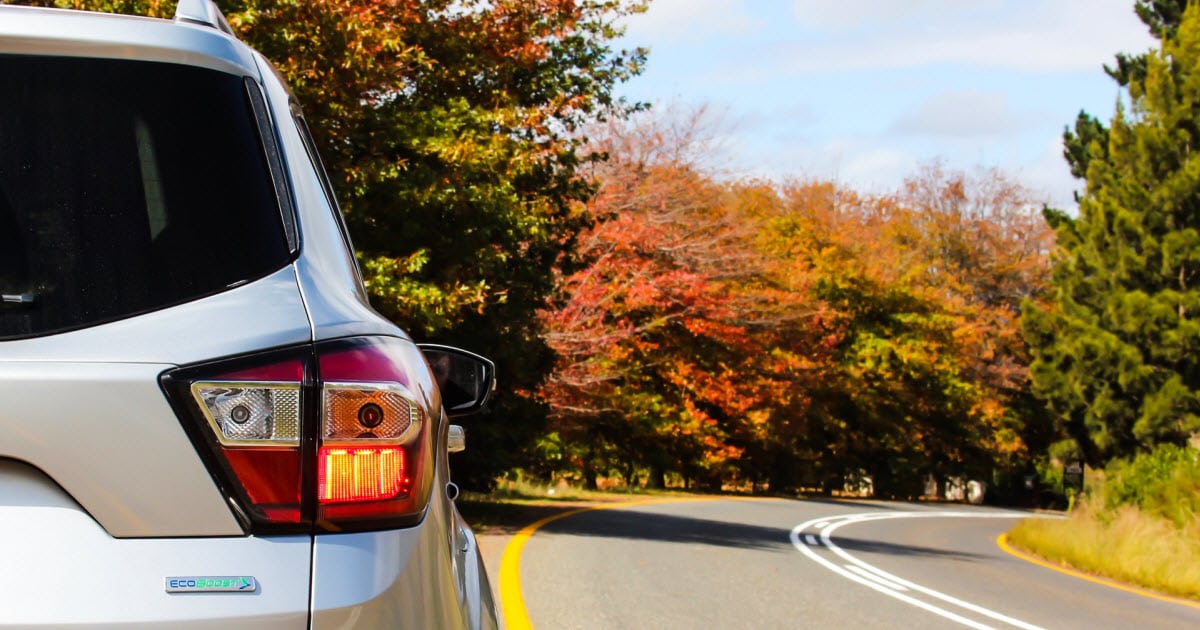
Everything You Need to Know About Renting a Car to Avoid Scams, Get a Great Deal, and Save Time
If you’re considering renting a car (or other vehicle, such as a van) for an upcoming vacation, business trip, or other excursion, you are probably eager to find all the information you need to save money, get the right car, and avoid falling into the traps and scams that so many travelers tell horror stories about.

Most travelers set a travel budget, and transportation (whether that’s rail travel, buying bus tickets, or renting a car) can be a big line-item to plan for. When you rent a car the cost will have a direct effect on what else you will be able to afford on your trip, so making a smart, informed decision can have a big impact on your vacation.
While every car rental company with a website makes it as easy as possible to complete your transaction, the truth is that there’s a lot more to renting a car than meets the eye.
There are many industry policies that might surprise you, and in this article we’ll give you all the information that you need to get a great deal. We’ll also provide a number of helpful tips to ensure that you get the vehicle and experience you hope for.
The first rule of renting a car is that you must do your due diligence and research to ensure that you are dealing with a reputable company before you click “Book Now.”
In this article, we will provide a comprehensive guide to everything you need to know about renting a vehicle. We’ll introduce you to the types of rental companies you may encounter, demystify rental car insurance coverage and fees, point out some of the most common scams to watch out for, and explain some ways to save money on long-term rentals.

Car Rental Guide Navigation Menu
This is a monster resource – probably the most comprehensive guide to renting a car available online. You may want to read everything we’ve put together for you here (and if you do, that’s great!), but in case you are looking for specific information, this menu will help you navigate our car rental guide.
Pros and Cons of Renting a Car When You Travel
When you’re planning a trip, choosing your means of transportation on the ground at your destination affects everything. Your budget, your schedule, your stress level.
So let’s start with the advantages and disadvantages of renting a car when you travel. It’s a good way to decide if a rental car will be the right choice for your trip.
Advantages of Renting a Car While Traveling
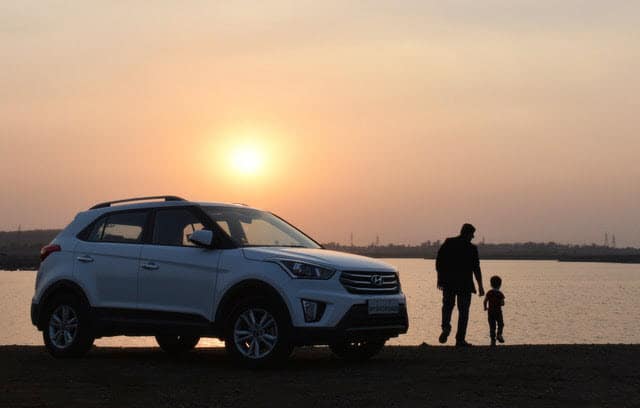
- You’ll enjoy much more latitude in where you can travel. A rental car will give you the personal and reliable transportation you need to travel wherever you like, far further away from the hotel or resort than you would have been able to otherwise. Having your own wheels will make taking day trips (and especially day trips at your own pace) much easier. If you’re traveling somewhere where there are many spots for day trips within driving distance, a rental car is an especially good idea.
- You can follow your own pace when exploring your destination. Having a rental car means that you get to decide when you go to visit each spot and landmark in your destination. If you don’t have your own wheels, you might find it annoying to have to go along with the pace of an organized tour or have to get to know public transportation schedules. Also, if you go to a day trip destination and find that you want to stay longer, you can (as long as you can find accommodations, of course).
- You’ll limit transportation expenses to the car and fuel. The only transportation expenses you’ll have at your destination will be that of your rental car and gas. Renting a vehicle will mean that you won’t have to pay for organized tours transport or public transportation.
Potential Disadvantages of Renting a Car When Traveling

- Renting a vehicle will significantly increase the cost of your vacation. You’ll have to make the cost of the rental vehicle part of your vacation budget. Depending on how much money you have to play with, this might mean having to cut back on other parts of your getaway. Sit down and really examine your priorities for the vacation, and find out everything you can about the destination and whether or not a rental car would be best for you and your personal goals while away. Take a look at your accommodation costs, food costs, and the cost of admission to the tourist attractions you want to visit. Remember to keep an adequate budget for any extras and emergencies, too. Travel is usually full of surprises, no matter how well you plan. So make sure that your budget is more than ample for what you plan.
- Parking might be a hassle. Renting a car will mean you will need to find a place you can park it at your accommodations. Make sure to discuss this and make arrangements you’re your hotel in advance. There may be a daily fee attached to this. Also be aware that parking might also come with a fee in many different tourist areas. You don’t want to feel like you spent your whole vacation searching for parking spaces, so make sure to find out what the situation will be in your destination.
- It’s possible that you will find you don’t really need a vehicle. If you rent a car, you might find that you don’t need it after you get there. This might especially be the case if your destination has lots of reasonably priced organized tours and top-notch public transportation. So make sure you do your research and find out in advance whether a rental car is actually needed.
- Renting a car always involves a level of risk. If you rent a car, you are taking the risk that you might get into an accident or somehow cause damage to the vehicle. This is why you must ensure that you are covered by insurance. Check to see if your insurance for your primary vehicle covers rental vehicles as well, and how extensive the coverage is. If it doesn’t, you will need to purchase insurance from the car rental company.
As you can see, whether or not renting a car will be a good idea depends on your specific needs, budget, and the circumstances of your planned vacation.
Types of Car Rental Companies
There are two different kinds of car rental company that you’re likely to deal with. They are:

- Companies that own cars and operate local rental counters: This type of rental car company is the type that most of us are most familiar with. The company owns the fleet of vehicles that it rents out, and it operates local rental counters in different areas for people to pick up and drop off cars. Some examples include Hertz, Enterprise, Avis, and many others.
- Brokers who allow you to compare rates between companies: Finding a car rental broker with an excellent reputation is often a fantastic choice for travelers. This is because rental brokers have the volume and leverage to negotiate for better prices from rental car companies for their consumer clients, who are often renting a vehicle for a longer period of time than a business client who may just need the car for one day. A reputable car rental broker will be able to get you a lower price and the rental price you are quoted should include all the extra charges. If you have ever rented directly from a rental car company before, you know that the total price can end up being as much as double what you are quoted. The type of all-inclusive car rental packages offered by good brokers could make planning your vacation budget much less stressful. The downside with working with a broker is that you’re actually dealing with two companies instead of one company should any issues arise on your trip. Some examples of brokers include Kayak, Expedia, Auto Europe, RentalCars.com, and many others.
Types of Car Rental Contracts

Most rental car contracts fall into one of these three categories:
- Round Trip: A round trip rental means that you will pick up and return the vehicle at the same destination. For example, if you were renting a car while in Paris, France, you would pick up the rental car in Paris, France and then drop if off in the same location after you were done with it at the end of your trip.
- One Way: A one-way rental means that you will pick up the rental car at one place and then drop it off at another. An example of a one-way car rental would be if you rented a car to take a road trip within Spain. You would pick it up in one location in Spain and then arrange to drop it off in another part of the country, after your road trip is over. With a one-way rental, you might want to fly in to one part of the country and then fly out from another far away. This is a fantastic way to give you a thorough experience of the country as a whole.
- International: This means that you drive your rental car across an international border and drop it off in another country. An example of this would be if you rented a car in France and arranged to drive it to Spain and drop it off there.

Demystifying Rental Car Sizes & Industry Jargon
Rental Car Sizes & Vehicle Classes
There are a number of different rental car sizes and classes, and many companies classify their vehicles in different ways.
You should learn about each to decide which one will be best for you and best suit your needs. We suggest that you keep in mind how many people you will be traveling with and make inquiries to ensure that the vehicle you choose will comfortably fit everyone, and that you’ll have sufficient trunk/boot capacity for your luggage (and any souvenirs you may acquire during your trip).
Remember, if you’re going to spend the money on a rental car, you might as well make sure that you’ll be comfortable in it and have plenty of room for your suitcases. After all, that’s part of the reason most people choose to rent a vehicle instead of taking public transportation!
Mini / Small / Sub-Compact / Compact / Economy Rental Cars
If you want a practical and fuel-efficient car, think about renting a vehicle in the mini/small/sub-compact/compact/economy categories. While the vehicles that fall into this general “small car” category range a lot in terms of how many people and how much luggage they can accommodate comfortably, this is an ideal solution for many travelers on a budget.
When renting a small vehicle, keep in mind that there will be limited legroom and much less space for luggage and other things during your journeys on the road, so plan ahead and consider upgrading to a larger vehicle … especially if you plan on driving for extended periods of time.
These vehicles can save you money with their low daily rate, and they also tend to be much more fuel efficient. They’re also great for getting around in cities because they’re easy to park.
Midsize or Intermediate Rental Cars
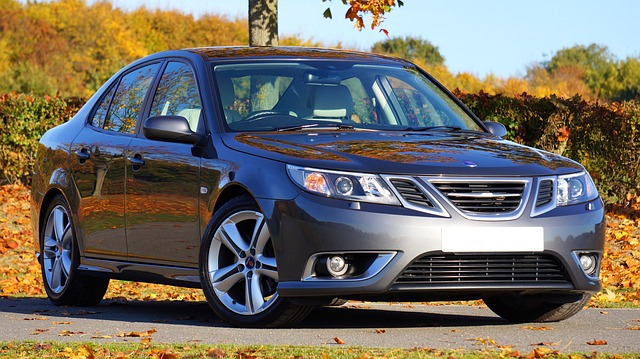
If you want a bit more space and comfort but still don’t want to break a limited budget, think about renting a midsize car. Vehicles in this class will give you more room than a compact or economy car for luggage, as well as more legroom.
In most mid-size vehicles you can probably fit at least three mid-sized suitcases or bags in your car without cramping the passenger space.
Full Size Rental Cars
A full-size car is a great option for travelers who want more space for luggage and more comfort and space overall than they would find in compact/economy and midsize options. You should have room in the car to easily bring along four medium-sized bags.
If you’re planning a road trip or your itinerary includes lengthy day trips, a full-size vehicle is a great choice because it’s much less expensive than a minivan or SUV, but you’ll enjoy a nice big comfortable vehicle that will enhance your journey.
Sport Utility Vehicles (SUV Rentals)
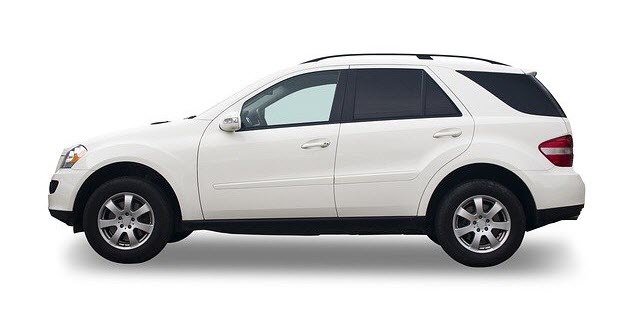
If you want more space than a car can provide, or you plan to encounter rugged terrain on your journey check out options for renting an SUV. You’ll find that an SUV provides lots more space, great leg room, and ample space for luggage and other things for your trip on the road.
An SUV is an especially good choice if you will be taking part in activities that require equipment (such as skiing, boating, or biking). Some destinations (like Iceland, for example) are great places for SUV rentals because 4-wheel drive can come in handy while exploring that country’s waterfalls and natural landscape.
Rental Vans
A van might not be the sexiest vehicle choice, but that minivan may be exactly what you need if you’re traveling with a larger group of the whole family.
Renting a van will give you lots of room to spare, helping to make your road journeys more comfortable and relaxing for everyone (especially kids). A van will give everyone room to keep things to amuse them on the road (such as games), as well as providing space for a great deal of luggage.
Some locations provide additional van rental options such as campervans (you can sleep right in your van cutting out hotel expenses), or sprinter vans from Mercedes (a truly upscale travel experience).
Of course the other type of van many people rent is a cargo or moving van. If you’re fit and feel comfortable driving a big U-Haul or Ryder vehicle, this can be a great way to cut costs on a cross-country (or even cross-town) move. Things to consider are the size of the box van (the whole point of renting a big vehicle like this is to make sure you can pack everything for one trip), and the load deck height (you may find it easier to load and unload with a moving van that’s closer to the ground).
Pickup Truck Rentals
There may be certain circumstances under which one might want to rent a pickup truck. If you think this might be for you, keep in mind that there won’t be much legroom and probably won’t be practical for most road trips. Inventory on pickup trucks is also very low in most locations, so renting a pickup truck will come at a premium cost and you’ll be limited on which companies you can work with.
Premium / Luxury / Exotic Car Rentals
If you have an ample budget and really want to make your trip one you’ll always remember, you could consider renting a luxury, premium, or exotic car. If you’re traveling to Europe, this will be especially exciting as there is such a range of famous premium cars available there. Many people choose to rent iconic brands build in the country they’re visiting (like Alfa Romeo in Italy, or Mercedes-Benz in Germany to drive on the Autobahn) as a way to truly immerse themselves in the culture of the location they’re visiting.
Hybrid or Electric Vehicle Rentals
If you’re considering renting a hybrid or electric car, do your due diligence to ensure that your destination will have the necessary infrastructure to keep the car running (especially if you’re going electric). Renting a hybrid or electric vehicle can be a great way to see if this type of vehicle could work for you in your everyday driving life.
Picking Up Your Rental Car
There are several important things to remember when picking up your rental car. Doing so will help ensure you have a hassle-free experience at the counter or kiosk and can get on with your trip as soon as possible. We’ll cover these here:

- Things to bring with you: Make sure you bring certain things with you when you go to pick up your rental car. You can think about making a checklist to ensure you don’t forget any one item. You must bring your driver’s license (and, if required, your International Driver’s Permit), a credit card in the name of the person who will be the main driver, and your booking details. Make sure you have the voucher, booking number, and the phone number and address of the car hire location from which you’re picking up the vehicle.
- Inspect the vehicle condition (and take photos): Take photos of the outside and inside of the car before driving away with it. This will provide you with important documentary evidence in case you are accused of causing damage to the car that was already there when you picked it up.
- Ask for a free upgrade: You can sometimes get a larger, more expensive car at no extra cost. Ask the agent at the car rental pick-up location. This person will often have the power to give you an upgrade. If they ask if you want an upgrade, ask them how much it will cost and make them understand that whether or not you will say yes will depend on the price. This will make them more likely to give you a good price. If they don’t ask if you want an upgrade, inquire anyway. The reason why upgrades are often available is because rental car companies often find themselves running short of economy cars and with an oversupply of the larger ones.
- Make sure you understand where, when, and how to return the car: Ask questions and do all the necessary research to find out where, when, and how you are supposed to return the car. And when you do return the car, take more pictures and even possibly a video of it as you slowly walk around the vehicle, so that you have documentary evidence that there wasn’t any damage to the vehicle at the time that you surrendered it. If you don’t keep this sort of proof, you might find yourself being charged for damage that you are not responsible for.
Dropping Off Your Rental Car
Usually when you drop off your car you’re doing so just before you catch your flight back home. Avoiding delays and unexpected expenses here is critical. Here are our three tips to make sure it goes well:

- Know where to go (and when they’re open): Find out the exact location where you are required to drop off the rental car and its opening and closing hours. You don’t want to find yourself trying to drop off your car when the location is closed. That could be a sticky situation!
- Make plans to fill the tank if you have a full to full fuel policy: Ascertain what the company’s policy is with regard to gasoline. If they have a full to full fuel policy, you’ll need to ensure you fill the tank just before dropping off the car. If you are picking up and dropping off the car at the same location, it is a good idea to look for a place where you can fill the tank just after you arrive in your destination. That way, you will know where to go before you drop the car off after your vacation is done.
- Inspect the vehicle condition (and take photos): Carefully document the condition of the car (with photos and perhaps even a video), so that you will be able to prove that you did not cause any damage. You will be glad you did this if the car company suddenly charges your credit card for damage after the fact.

Explaining Complicated Car Rental Fees & Charges
Common Car Rental Fees, Taxes & Surcharges
One of the parts of car rental contracts that is the most confusing and frustrating for travelers is the fine print. If you’re wondering whether that tax or surcharge is a rip-off or standard industry practice, the information below will help.
One Way or Drop-Off Fees for Rental Cars
If you decide that you want to take your rental vehicle on a one-way trip (for example, if you want to take a road trip from Paris, France to another part of the country and then drop the car off at your destination before your flight home rather than going back to Paris), you will probably need to pay a one-way or special drop-off fee.
This fee is charged by almost all car rental companies, though the amount of the fee varies (so shop around!). The exact same rental from Enterprise and from Hertz may come in at a comparable per-day rate, but the drop fee could be hundreds of dollars more at one company.
For this type of rental we usually recommend working with a broker, because they make it easy to compare the drop fee. Booking with an agent over the phone might save you time as some companies do not show the amount of one-way fees before paying for your rental.
Companies charge drop-fees to cover the cost of fleet movement from one location to another (they usually have to bring in another car so they maintain inventory at the location where you picked up your rental, which costs them money).
One tip we recommend to reduce this fee is to plan one-way trips that stay domestic. If you cross borders, expect the one-way charge to rise quickly, so find a location near the border, drop your vehicle there and take a train or bus to the next country on your itinerary where you’ll rent a new car. This can save you hundreds, or even thousands of dollars.
Car Rental VAT (Value Added Tax)
You will need to pay VAT (Value Added Tax) on your car rental if you are renting your vehicle for a trip in Europe.
VAT ranges from between 15% and 30% and depends on the specific country. 15% is the minimum allowed VAT, but many countries charge much more (approaching 30%), so this can quickly impact the total cost of your rental. If you don’t see this on the final booking screen of the website where you’re renting a car in a European country … slow down and compare that rate elsewhere to be sure you’re certain of the total cost of your rental before you book.
Equipment Fees

It’s possible that it will be necessary to pay equipment fees for your rental car.
Examples might include fees for GPS, winter tires, child seats, luggage racks, and other types of equipment that will enhance your trip. Some of these items might be mandatory and required by law (examples include winter tires, appropriate child seats, etc.).
The exact fees will depend on your car rental company. Do your due diligence and check into the prices demanded by each company, and weigh the cost and convenience of renting a seat for your child vs. bringing your own. Most of the time it’s better to just pay a little extra and rent theirs.
Local Taxes
You will need to pay local taxes (examples of how this might appear on your rental car contract include a mandatory road tax, environmental fee, road safety fee, and vehicle license fee).
These fees are usually unavoidable and are legal obligations of the company to the city or district where they’re doing business. It’s a way for the community to fund repairs to roads and infrastructure that are incurred from heavy tourist traffic.
Do research on your destination and make inquiries with potential car rental companies as you do your research so you’ll be aware of these fees. Many car rental companies do not include these in the price they quote you online, and they’ll be charged locally when you pick up the car. You can’t refuse to pay them, but save yourself the surprise and find out how much they will be before you depart so you can adjust your budget to reflect these costs.
Location Surcharge
If you want to arrange to pick up your rental car at a premium location (a convenient location such as an airport or train depot), you will probably have to pay a location surcharge.
This might sound like a rip-off and just another way for the rental company to gouge you on price, but many of these companies have to pay extra for the parking space to keep their fleet of vehicles near that transportation hub.
While you can get a lower per-day rate by taking a cab to a downtown car rental depot, in our experience the fee works out to be comparable to the cab fare, so you’re usually better off paying this convenience fee (though this may be different for your particular travel plans).
International Fee
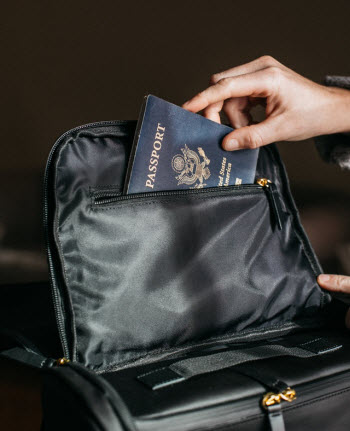
If you plan to drive your rental car over international borders at any point during your trip, you will need to pay an international driving fee.
Find out from your car rental company how much this fee will be, because it likely varies from one company to another, and the company that quotes you the best per-day rate might not be offering you the best deal when you include this fee in the total cost of your rental vehicle.
Additionally, there are some companies who do not allow their rental vehicles to travel across certain borders. This is true for some European countries who do not allow their cars into some countries in Eastern Europe, for example. It’s still possible to rent a car for this sort of trip, you may just need to drop one car off at the border, and pick up another for the next leg of your journey. If you have a complicated itinerary it’s always best to check with your car rental provider to be sure you avoid large fees and surcharges for driving internationally.
Insurance Fee
If you have an insurance claim, there is usually an administrative fee to file the paperwork. Keep this in mind when setting out your budget and making sure you have money to spare for extra costs such as this one. You’re obviously not expecting to get into an accident with your rental car, but it’s always a possibility and you need to be prepared.
This fee is charged after you return home to the credit card you used for the trip and is in addition to any deductible you pay after the accident. It is one of the most frustrating fees for many travelers who feel it’s just a way for the rental company to gouge them for extra money.
Whether that’s true or not, the fee is pretty standard across the industry, so it’s something that is unavoidable and that you should expect to pay at some point if you do get into an accident with your rental car.
Fuel Fees
Pay attention to your fuel policy to avoid paying a premium. Take a close look at the rental agreement when you pick up your rental car to see what your obligations and options are in this area.

If you are required to return the car with a fuel tank, make sure you make arrangements to do so by leaving time before your return flight and noting the location of a nearby gas station.
Mileage Charges
You should ALWAYS verify that your car rental comes with unlimited mileage to avoid paying extra for driving beyond an arbitrary mileage limit.
If there is a mileage limit, find out what it is before you leave the lot, and make sure that limit will fit in with your plans. It’s a good idea to snap a photo of the odometer (or verify that the mileage on your rental contract matches the odometer) just to be safe and avoid any disagreements or unscrupulous behavior by the rental agency.
Also, it’s a good idea to ascertain what the fees will be if you go over the limit before you depart … that way you know if the mileage limit is a big deal, or if the fees are something that fits in your budget.
Driver Fees
If you want to have more than one driver for your rental car and/or you will have a young driver (typically anyone under 25) or senior driver (typically anyone over 65), you will likely have to pay an extra fee.
This is standard practice across the industry, and it’s something you should expect if you are a young driver or an older driver, or if you plan to have more than one driver on the rental car contract. In fact, some rental car agencies will not even rent to drivers under the age of 25, 21, or 18 in any circumstance.

Common Car Rental Insurance Questions Answered
All About Car Rental Insurance Coverage
Do I actually need to buy car rental insurance coverage?
That is one of the most common questions about renting a car, and the best answer is: it depends.
Keep the following factors in mind when considering whether you you choose to buy car rental insurance coverage:
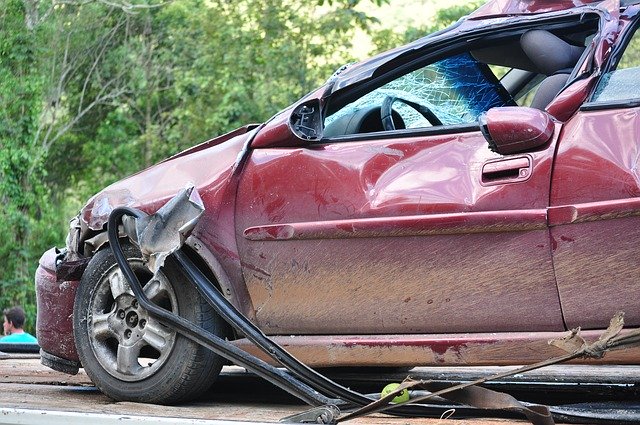
- Coverage provided by your credit card: Check to see if your credit card provides any insurance on your rental car. Most do, but the important thing that you must verify is the extent of the coverage and if any conditions apply. Some credit cards only cover a certain amount of damage (leaving you responsible for any damage beyond that amount), and they may not cover rentals outside of your country of residence. You’ll have to phone your credit card company to confirm you have coverage for your rental, and if they say you do we recommend you make sure to get that in writing before your trip so that they cannot deny your claim.
- Coverage provided by your personal auto insurance policy: It’s likely that the insurance you have for your personal automobile might also give you some coverage for your rental car, as it could be considered a replacement vehicle. Look into this before deciding whether to purchase insurance from your car rental company. If your personal automobile is an old beater, and you’re renting a brand new Mercedes for your trip, it’s likely that your personal auto insurance policy only covers the value of the car you owned. If you total that Mercedes, you might be on the hook for the difference.
- Some countries have laws requiring insurance from the rental company: Keep in mind that regardless of whether you already have coverage through your car insurance or your credit card, some countries require you to purchase additional insurance through the rental company by law. Check to see if your destination is among these. Don’t assume that the salesman at the pick-up counter is telling you the truth when he says you need to buy it.
- High-end/luxury rentals: Are you planning to rent a high-end or luxury vehicle? If so, it’s probably a good idea to purchase insurance through your rental company. This is because your personal car insurance and/or credit card probably won’t cover the full value of the car if there is a total loss accident. Better safe than sorry with a valuable vehicle rental.
- CDW (Collision Damage Waiver): While a CDW (Collision Damage Waiver) policy is among the more expensive options for rental car insurance, it can dramatically reduce the deductibles that you will owe if the vehicle is damaged. CDW (Collision Damage Waiver) can cost between an extra $10 and $30 per day. With a CDW (Collision Damage Waiver), the car rental company gives up the right to demand a high deductible from you, which is one reason why this is a popular choice among travelers. $10 a day is a small price to pay for the peace of mind you’ll have during your trip.
- Theft Protection (TP): You will need to obtain Theft Protection (TP) for your rental car. Theft Protection will cover part of the cost of replacement of the vehicle if it is stolen. It will also cover some of the cost of repair if damage is done to the vehicle during a theft attempt. Be aware that every car rental company has its own rules on this issue, and you have to do your due diligence in finding out all the rules and limits of coverage. It’s also important to understand that your Theft Protection will be effective only if you abide by the terms of your rental agreement. If you leave your rental car unlocked and it is stolen, you would be liable for the entire cost of replacement. You can also purchase extra theft insurance at the rental counter. Ask about this if it isn’t offered to you, and of course where you’re traveling may make theft protection more or less valuable to you.
- Fire insurance: Fire insurance is generally included in most rental car insurance policies. You should be aware that it is mandatory in some counties. Find out whether this is the case in your destination when making your decision whether to buy insurance from the rental car company. If it’s legally required in the country you’re visiting, most rental companies just roll that into the price they quote you for the rental, so you’ll have it and you won’t have the option of declining.
- Third Party Liability: Third party liability coverage provides financial protection if you are responsible for an accident that results in personal injury, death, or property damage. As most countries have made third party liability coverage legally required for all cars on the road, your rental car should automatically have the basic amount required in its country (check the individual country and its laws if you’re not sure). You should be aware, however, that in North and South America, the legally required coverage is rather low. If you drive with the minimum coverage in either location and you are responsible for an injury, death, or property damage, you will likely end up having to pay some of the damages out of your own pocket. To better protect yourself, you can buy Supplemental Liability Insurance, something we recommend you consider for added peace of mind.
- Deductible vs. Non-Deductible: Non-deductible or zero-deductible car insurance means that you won’t be required to pay a deductible out of pocket if you incur damage to the car. Non-deductible or zero-deductible policies cost more, but you may find it worth it in the end if you get into an accident. Not only will you avoid a hefty deductible charge to the credit card you have on file with the rental company (which could quickly erase the balance of your travel budget), but you’ll avoid a lot of the delays that paperwork and procedure would otherwise burden you with following an accident. Look into the specific policies and the details of the insurance provided by your car rental company to make a decision about whether this sort of coverage is worth the extra investment in your case.
Long Term Car Rental vs Short Term Car Lease
If you’re traveling for a month or more, some companies offer the opportunity to lease a new car under a short-term lease agreement. This can often save you money when compared to a long-term traditional car rental, especially if you’re traveling to a destination for more than three weeks and need a car to get around during your stay. If you pursue a lease like this, you’ll get a brand-new vehicle for the duration of your stay and in most cases you’ll save money. That’s what we consider a win-win.

A few examples of companies that do this are the French companies Peugeot and Renault, though we think it’s likely that other companies will soon follow suit.
In case you’re looking for a long term rental for a business trip or extended vacation in Europe, let’s take a look at Peugeot’s short-term rental program.
To qualify for this program, you need to be planning a trip to Europe that will last 15 days or more. You also must be at least 18 years old and have a driver’s license in good standing. You must reside outside the European Union.
This is an especially fantastic opportunity for very young drivers, as some rental car companies in Europe either have limitations or completely refuse to rent to drivers under a certain age (often 21). Also, this short-term lease costs quite a bit less than renting a car for an equivalent amount of time would. With a Peugeot short-term lease, you will drive a brand-new car and have zero deductible insurance coverage. This means that if you incur any damage, you will not have to pay anything out of your own pocket.
The lease contract for this program is tax-free and provides full insurance and no excess fees. You can travel in 40 European countries with the car, and you wont’ have to worry about getting permission for international travel like you would with traditional car rental.
As it that weren’t enough, you will also get to choose from a variety of models new from the factory. Make sure that you read the contract carefully and stay within all its perimeters, as failing to do so could make you liable for damage. This includes ensuring that you stay within the 40 countries that you are allowed to travel in with the car.
With this short-term lease, you will enjoy the benefits of unlimited mileage and an exemption from the VAT (Value Added Tax). That’s a big deal, and a big part of the reason why the savings of a short term lease may are attractive. If VAT is 30% of the cost of your rental, you can save a lot of money by avoiding it.
You may also have the chance to save on conversion fees (fees for converting from your own country’s currency to the Euro), as there is the opportunity to pre-pay using your domestic currency.
Peugeot also offers roadside assistance for its short-term leases. This means that you have a number to call for help at any time day or night if you have a problem with the car. As mentioned, these vehicles are brand new cars so they probably won’t have any issues … but the peace of mind is great.
Whether you’re traveling to Europe or elsewhere for a month or more, it may be worth exploring short-term leasing as an alternative to a traditional rental car. You could save enough money to upgrade from your hotel room to a villa or townhouse to enhance your stay.
Our Favorite Ways to Save Money on a Car Rental
There are numerous ways to save money on a car rental, and these are well documented online and on pretty much every major news website. That said, we wanted to share a few of our favorites with you here:

- Travel outside of peak periods when supply exceeds demand: Find out the peak periods for travel to the destination of your choice, and then try to find a way to make your travel plans for outside of that period. For example, if you know you’re your destination is extremely popular during the summer, consider going there in the winter instead.
- Plan your trip to coincide with seasonal fleet movement: For example: companies often need to move rental cars from New England to Florida during the winter and vice-versa. Sometimes you can rent a vehicle for almost nothing for these long one-way trips. After all, you’re helping the company move the car to where there is more demand.
- Book your rental well in advance and check rates on a weekly basis: If you see a lower rate, contact the company to ask that they drop your price to match the new rate. If you can, book your car three to even six months in advance if your destination is somewhere popular with visitors. Take a look at the Terms and Conditions before you do, and try to make sure that you will be allowed to cancel free of charge if you happen to see a better deal later. Different companies have different conditions, so this is something you will need to look into specifically.
- Set up price alert notifications: Think about setting up online price alert notifications. Try Autoslash’s Track Price feature for this purpose. Receiving price alert notifications will let you jump on the best deals as soon as possible, helping to make sure that you won’t miss out.

Don’t Fall For These Common Rental Car Scams
Common Rental Car Scams to Be Aware Of
Unfortunately, there are numerous different rental car scams out there that you need to keep an eye out for if you want to avoid a hassle and having to pay extra money (possibly a lot extra).
While the majority of rental car companies we’ve dealt with treat their customers well, there are a number that do not, and see a target on the back of everyone who walks through their doors.
To keep your hard-earned cash safe and enjoy a hassle-free rental, watch out for these common car rental scams and dishonest practices:
Oddly Low Upfront Prices
Be wary if the upfront fees are extremely low. If you’re on a website and see a rate that feels too-good-to-be-true (for example, $40 or more less per-day than than competitors) … that rate probably IS too good to be true.
Sometimes this low rate leaves out a number of required fees that you’ll be asked to pay when you pick up the vehicle (the old bait and switch).
Often, the reason for this will probably be that the budget vehicle you have reserved will not be available when you go in to pick up your car. The scam is that you will be forced into an expensive upgrade (possibly a very expensive one) once you’re at the counter … tired from your flight and ready to start the trip. This can be an especially tricky situation if you are brought by shuttle van to a remote location to pick up the car. Without options, most people have no choice but to pay up.
To avoid this scam go with a reputable company offering a fair rate, even if it’s not the best rate you find.
Toll Charge Tricks
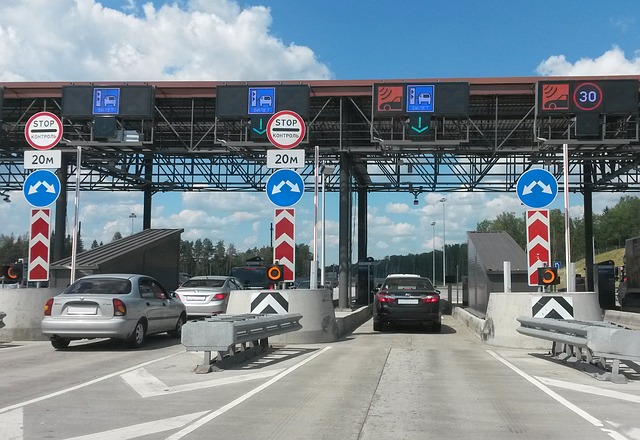
Some dishonest rental car companies take advantage of EZ Pass replacing traditional toll booths.
Car rental companies can inflate these charges when they collect them from customers, sometimes asking for special processing fees. These are billed to your credit card on file after your trip is over and you’ve returned home. The hope is that you won’t notice.
Using a credit card that sends you alerts about unexpected charges can be a great way to catch these, but often you may not be made whole by the car rental company.
Sometimes working with a broker like Expedia can help … they can advocate on your behalf and because the broker sends so much business to Jimmy-Bob’s Rentals, Jimmy Bob caves and refunds you the bogus charge.
Strange Return Policies
Be sure to avoid car rental companies with strange and possibly hazardous return policies.
If you are brought to an unprofessional looking location for pick-up your car and you are offered a poor quality and/or dirty vehicle, that’s a good signal that something may be wrong.
If the attendant tells you to drop the car by a warehouse outside of business hours and to leave the keys inside with the doors unlocked … listen to the voice inside your head!
Call a cab and head to a different rental car desk immediately.
Inflated prices and bogus charges almost always end up being part of this ploy.
Blaming You for Rental Car Damage
Dishonest rental car companies might try to accuse you of creating damage to the vehicle that you are not responsible for. These companies will charge your credit card for damage that already existed before you picked up the car, damage that happened after you dropped off the car, or damage that does not exist at all.
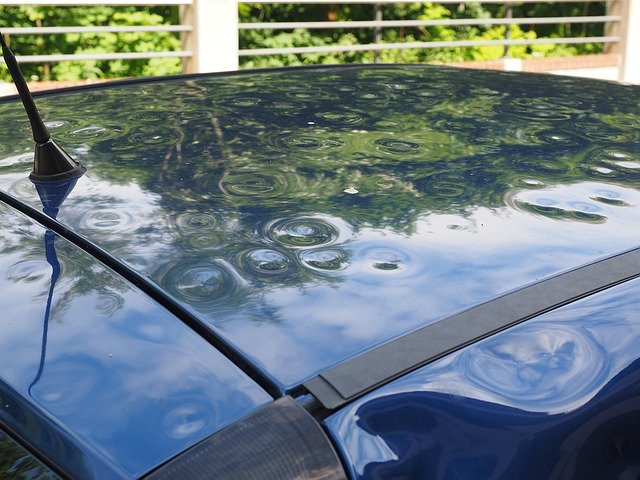
Often this scam is repeated … the company has a car with damage that they rent out repeatedly, charging multiple customers for the damage after they’ve returned home.
They count on the inconvenience of fighting the fee and many people give up and accept the bogus charge.
To help avoid this situation, thoroughly inspect your car, taking pictures and video footage when you pick it up.
Make sure that they acknowledge any damage that you see, and that you do not sign a form saying that there was no damage. Also take photos and video of the car when you drop it off.
Have photographic evidence and proof of the car’s condition? These companies will typically refund the charge. That’s why taking a few moments to document the vehicle’s condition is well worth it and something we strongly recommend every traveler does.
Late Fees
Make sure to find out whether the rental company has any late fees and exactly what they are.
A dishonest company might consider the car being late to mean that you have entered a new rental period, and they might charge you for an extra day (at best) or charge you for an extra day and give you a higher rate for the duration of your rental (at worst).
When you pick up your car be sure to ask the hours the office are open on your return date. A common scam is scheduling your rental car return return on a weekend when the office is closed. You could be charged for extra days because the return wasn’t processed until Monday morning.
Your due-diligence and attention to detail is all that’s standing between you and these bogus charges.
Hidden Rules About In-State Travel
Your rental car might include unlimited mileage. Great, right? Many car rental companies have hidden rules about the policy applying only to in-state travel.
This means that if you travel outside of the state with the rental car, you could be charged large fees for breaking those rules.
The same applies to international travel.
Pressure to Buy Insurance You Don’t Need
While most rental car companies will probably try to persuade you to buy insurance from them even though you might already have coverage from your regular car insurance and/or your credit card, certain companies will demand that you pay an enormous deposit if you do not buy their insurance. Some will even refuse to rent to you at all.
You should be aware that this is against the law in most states and in many countries.
Insane, Exorbitant Gas Fees

Make sure you understand the rental company’s policies and fees with regard to gas before you arrange your rental and pick up your car.
These policies are typically Full-to-Full (you must return the car with a full tank or they’ll charge you to fill it) or Full-to-Empty (you can return the car at any fuel level).
If you return the car with the tank half-full and had a Full-to-Full fuel policy, you might find that there is a surcharge that will cost a lot more than the cost of fuel at a local station.
Also be careful with buying “fuel packages,” as they may mean paying much more for gas with the rental company than you would just buying it independently.
When in doubt fill the tank just before you return the car, save the receipt, and snap a photo of the odometer and fuel gauge as you return the vehicle.
You Now Know Everything About How to Rent a Car
Congratulations!
You are now an informed consumer and you will be in a better position to make a wise choice in selecting a rental car company and vehicle for your next trip.
Have a fantastic journey, and if you found this information helpful please share it with a friend!

